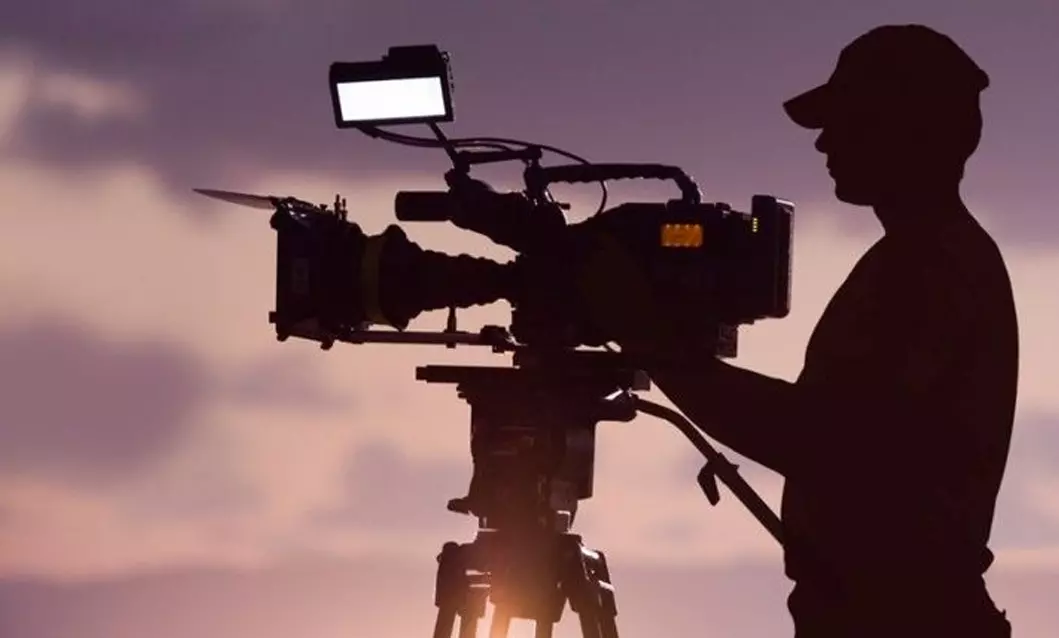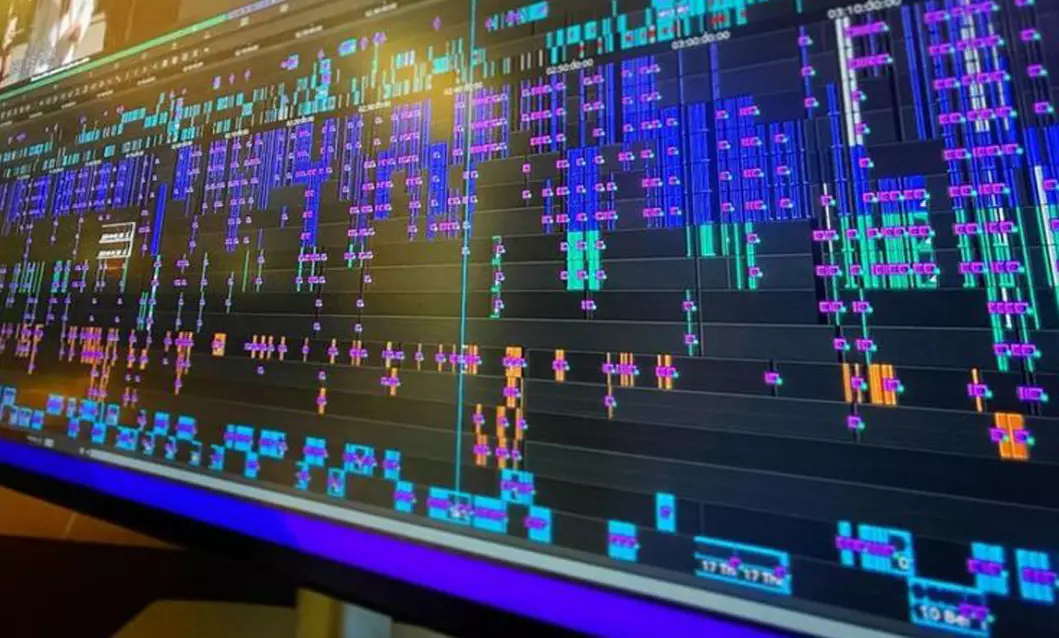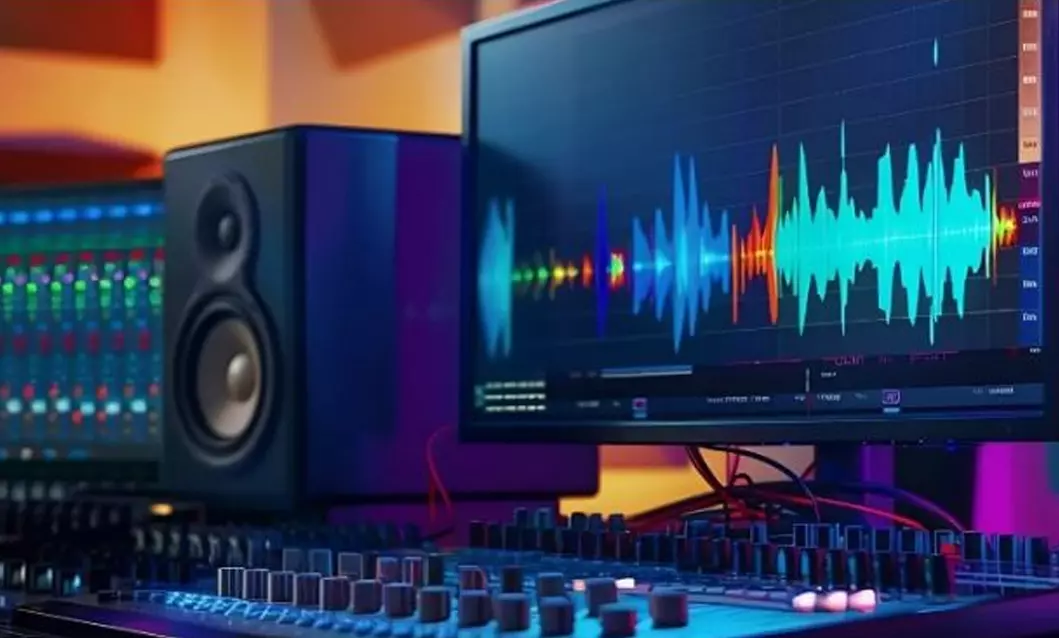Our Screenwriting and Direction course at SIFT equips you with the skills to craft compelling stories and bring them to life on screen. You will learn the essentials of scriptwriting, character development, dialogue, and story structure, alongside the key techniques of direction, including working with actors, camera movements, and visual storytelling. Through hands-on practice and real-world projects, you’ll develop your ability to create impactful narratives and direct them to perfection.
You will learn how to write compelling scripts, develop dynamic characters, and structure engaging stories. You’ll also master the art of direction, including working with actors, planning shots, and using visual techniques to enhance storytelling. By the end, you'll have the skills to write, direct, and bring your creative ideas to life.
At SIFT, you’ll gain hands-on experience by writing original scripts, directing scenes, and collaborating with fellow students on film projects. You'll work with professional equipment and real actors, allowing you to apply your screenwriting and directing skills to create compelling visual stories.
Graduates of the Screenwriting and Direction course can pursue careers as screenwriters, directors, producers, script editors, or film content creators. With a strong foundation in both writing and directing, you'll be prepared to work in film, television, digital media, and advertising, or even start your own production company

Our Cinematography course at SIFT focuses on the art and technique of capturing compelling visual stories. Students will learn the fundamentals of camera work, lighting, composition, and color theory, along with advanced skills like shot planning, movement, and visual storytelling. Through hands-on practice and industry-standard equipment, you'll gain the technical knowledge and creative insight needed to bring any script to life visually, whether for film, television, or digital media

You will learn camera operation, shot composition, lighting techniques, color theory, and how to use industry-standard equipment to enhance visual storytelling.
At SIFT, you’ll gain hands-on experience using industry-standard cameras and lighting equipment. You'll work on real projects, experimenting with different camera techniques, lighting setups, and shot composition. Through collaborative exercises and individual assignments, you'll refine your skills in creating visually compelling stories and develop a strong portfolio of work.
Graduates of the Cinematography course can pursue careers as cinematographers, camera operators, lighting directors, or film/video editors. With the skills to create visually stunning content, you’ll be prepared to work in film, television, advertising, and digital media, or even start your own production company.
Our Color Grading course at SIFT focuses on the art and technique of enhancing visual storytelling through color manipulation. You will learn how to use color correction tools to adjust tones, contrast, and brightness, as well as how to apply stylistic color grades that evoke specific emotions and moods. With hands-on practice using industry-standard software, you’ll develop the skills needed to create visually striking and cohesive looks for film, television, and digital media projects.
You will learn to use color grading software for correction, enhance footage, apply creative color styles, and understand how color affects storytelling and mood.
At SIFT, you’ll gain hands-on experience using industry-standard color grading software. You’ll work on real projects, applying color correction and creative grading techniques to enhance footage, develop unique looks, and create visually impactful content.
Graduates of the Color Grading course can pursue careers as colorists, post-production specialists, or editors in film, television, advertising, and digital media. With the skills to enhance visual aesthetics, you'll be prepared for roles in post-production houses, production studios, or as freelance professionals.

Our Advanced Film Editing course at SIFT is designed for those who want to take their editing skills to the next level. You will learn advanced techniques in cutting, pacing, and structuring a film, as well as mastering editing software and industry-standard tools. From narrative editing to sound design and visual effects, this course will equip you with the expertise to create polished, professional-level films that captivate audiences.

You will learn advanced editing techniques, mastering pacing, transitions, sound design, visual effects, and working with industry-standard editing software to create seamless, professional-level films.
At SIFT, you'll work on real-world editing projects, applying advanced techniques to refine your skills. You’ll edit raw footage, experiment with sound design, and integrate visual effects, gaining hands-on experience with professional editing software used in the industry.
Graduates of the Advanced Film Editing course can pursue careers as film editors, video editors, post-production supervisors, or sound designers. With the expertise gained, you'll be prepared to work in film, television, digital media, and advertising, either in-house or as a freelance professional.
Our VFX in Cinema course at SIFT teaches the techniques used to create stunning visual effects in films. You’ll learn the fundamentals of CGI, compositing, motion graphics, and simulation, all while working with industry-standard software. This course will give you the skills to enhance storytelling with groundbreaking visual effects, making your cinematic creations come to life.
You will learn to create and integrate visual effects using CGI, compositing, motion graphics, and simulations. You'll master industry-standard VFX software to bring cinematic visions to life, from enhancing scenes to creating stunning, realistic effects.
At SIFT, you’ll gain hands-on experience working on real VFX projects. You’ll use industry-standard software to create and integrate visual effects, from CGI to compositing, and learn how to seamlessly blend VFX into live-action footage, preparing you for professional work in the film industry.
Graduates of the VFX in Cinema course can pursue careers as VFX artists, compositors, motion graphics designers, or 3D artists. With expertise in creating cutting-edge visual effects, you’ll be prepared to work in film, television, advertising, video games, and digital media

Our Music Production and Engineering course at SIFT covers the technical and creative aspects of producing and recording music. You’ll learn how to use professional audio equipment and software to record, edit, mix, and master music tracks. The course will also teach you about sound design, arrangement, and the overall production process, equipping you with the skills to produce high-quality music across a variety of genres. With hands-on experience, you'll be prepared for a successful career in music production or audio engineering.

You will learn how to record, mix, and master music tracks using industry-standard equipment and software. You’ll explore sound design, music arrangement, and the technical aspects of audio engineering, gaining the skills to produce professional-quality music across multiple genres.
At SIFT, you'll gain hands-on experience recording, mixing, and mastering tracks in professional studio settings. You’ll work with industry-standard equipment and software, creating your own music projects while developing practical skills in sound design, arrangement, and audio engineering.
Graduates of the Music Production and Engineering course can pursue careers as music producers, audio engineers, sound designers, or mixing/mastering engineers. With expertise in both the technical and creative aspects of music production, you'll be prepared to work in studios, film, television, advertising, or as a freelance professional.
Our Sound Design & Engineering course at SIFT focuses on the art and technique of creating and manipulating sound for film, television, video games, and other media. You will learn to design and engineer sound effects, dialogue, and ambient sounds, mastering both the technical and creative aspects of sound production. Using industry-standard software and equipment, you’ll gain the skills needed to create immersive audio experiences that enhance storytelling and impact audiences.
You will learn how to create and manipulate sound effects, design immersive audio landscapes, and engineer high-quality sound for various media. You'll master the use of industry-standard software and equipment to record, edit, and mix sound, as well as develop skills in creating dialogue, foley, and ambient soundscapes.
At SIFT, you’ll gain hands-on experience working with industry-standard sound design software and equipment. You’ll create and engineer sound effects, record foley, and mix audio for real-world projects, developing the skills necessary to craft immersive soundscapes for film, television, and video games.
Graduates of the Sound Design & Engineering course can pursue careers as sound designers, audio engineers, foley artists, or postproduction sound specialists. With expertise in creating and mixing sound for various media, you’ll be ready to work in film, television, gaming, advertising, or as a freelance audio professional.

Our Filmmaking Program at SIFT provides a comprehensive education in all aspects of filmmaking. From scriptwriting and directing to cinematography, editing, and sound design, this program covers the full creative and technical process of producing films. Students will gain hands-on experience working on real-world projects, learning from industry professionals, and using state-of-the-art equipment. By the end of the program, you’ll be prepared to take on a variety of roles in the film industry, from writer and director to editor and producer

You will learn all aspects of filmmaking, including scriptwriting, directing, cinematography, sound design, editing, and post-production. You'll gain hands-on experience using industry-standard equipment and software, and develop the skills to bring your creative vision to life, from concept to final cut.
At SIFT, you’ll gain hands-on experience by working on real film projects, collaborating with fellow students in key filmmaking roles. You’ll write scripts, direct scenes, operate cameras, edit footage, and handle sound design, using professional-grade equipment and software to bring your projects to life.
Graduates of the Filmmaking Program can pursue careers as directors, producers, screenwriters, cinematographers, editors, or production assistants. With hands-on experience and a strong portfolio, you’ll be prepared to work in film, television, advertising, and digital media, or even start your own production company.